Composting in the Twin Cities
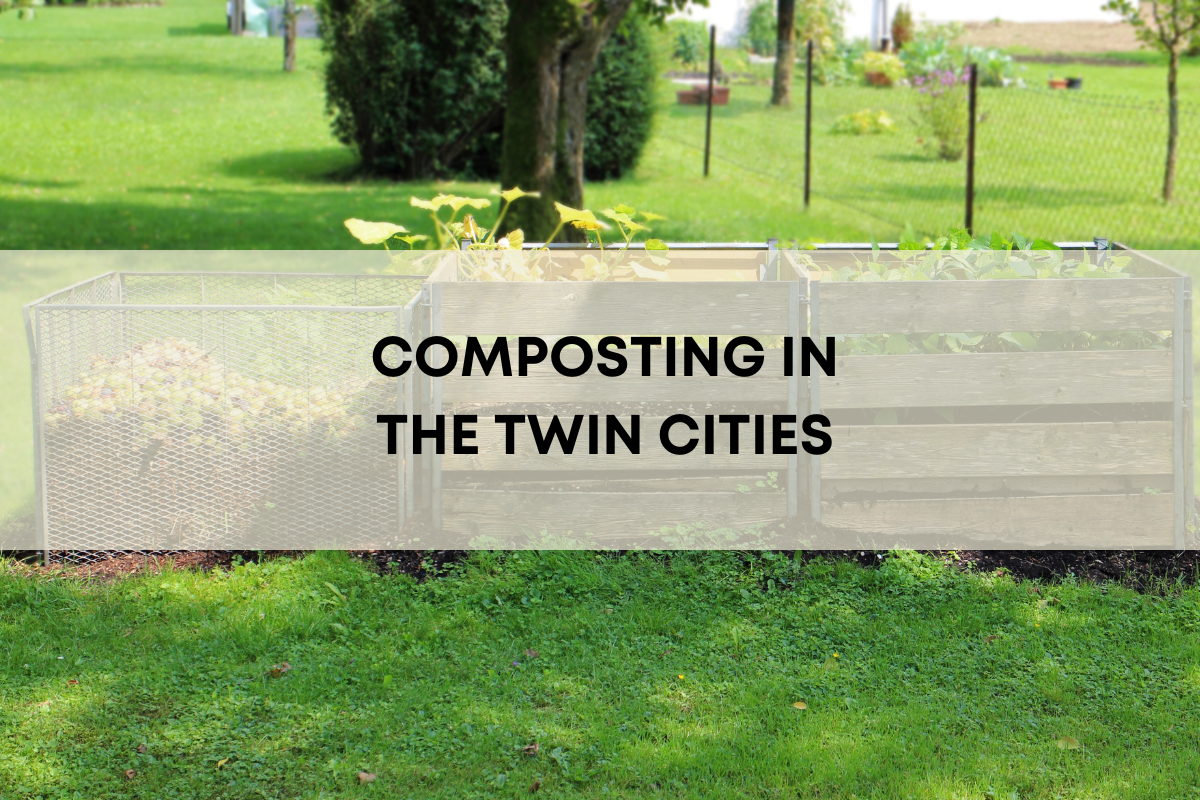
Did you know that about 33% of food is wasted before it’s even consumed? That’s equal to about 1.3 billion tons of fruits, vegetables, meat, dairy, and more that never leave the farm, get lost, spoiled, or are thrown away from our homes, kitchens, stores, schools before it’s even eaten.
This wasted food causes huge environmental issues when it ends up in the landfill. Rotting food in landfills generates methane gas, a greenhouse gas that is 23 times more potent than carbon dioxide. It’s a startling statistic, but there’s an easy way that you can take action now to cut down on food waste as well as reduce your overall carbon footprint.
In the Twin Cities, getting started with composting is easier than you might think, whether you have a home with a backyard, or live in an apartment building.
Why Compost?
Composting is one of the most sustainable actions that you can take to help the environment. Here’s why:
- Reduce Methane Emissions: when food waste decomposes in a landfill, it lacks oxygen, which causes it to produce methane. Composting, on the other hand, allows waste to break down aerobically in a controlled environment, significantly cutting down on greenhouse gasses.
- Replenish Natural Resources: Growing food requires significant natural resources: air, water and soil. Composting helps to close the loop by returning these nutrients back into the soil, which helps our environment & community.
- Save Money: Composting provides you with nutrient-rich soil for your garden or potted plants, which eliminates the need for store-bought compost, fertilizer, and plant food, which are typically packed in plastic!
- Reduce Landfill Waste: By composting, you’ll be diverting food scraps and waste from the landfill. This helps to reduce the burden on these sites and creates new and usable soil in the process.
- Support a Circular Economy: Composting turns waste into valuable resources, helping to promote a more sustainable and circular economy.
How To Get Started
Whether you live in a house with a yard, or an apartment, composting is possible! Make sure you look into what your county offers so that you can participate!
Backyard Composting
If you have a yard, composting is possible and straightforward. Start with two bins: a smaller one with a lid for collecting your kitchen scraps indoors, and another larger one for composting outdoors. Start adding food scraps to your indoor bin and as it begins to fill up, transfer to your outdoor bin.
Turn your compost occasionally with a shovel to ensure even decomposition. In about a year, you’ll have rich and fertile soil for your garden. Want advice on what to not throw in your bin? Keep reading!
City Composting - Drop Off Sites
Many counties, in the Twin Cities or beyond, offer food scrap and composting collection or drop-off sites. Make sure to check where the collection and/or drop-off sites are located in your county before you begin so you can arrange the best schedule for your household.
Use a sealed container or bin with a lid at home to collect your food scraps. To better manage odor and fruit flies, we recommend lining your bin with compostable bags, using an airtight container and adding filters to your bin. When full, simply drop off at a site.
City Composting - Pick Up
Hennepin county offers free organics and compostable pickups. You can sign up to start a collection at your home, or you can also bring your compostables to a drop-off site. Be sure to check out their website for updated information.
In Ramsey county, pickups are offered for Maplewood and North St. Paul and will be rolling out to the rest of Ramsey County over the next few years. For areas where pickups are not yet available, there are several 24/7 drop-off sites around town. Check their website here for more information.
If you are outside of Hennepin or Ramsey, or your county does not offer collection or drop-off, a community garden and/or local farmer may accept food scraps to add to their compost too.
What Can I Compost?
Depending on if you are home composting or composting with the city in an industrial facility, there are some items you can and can’t compost.
We recommend checking with your local county to confirm what can be composted in their facility if you are composting for collection or drop-off.
Here is a basic guide by Hennepin County.
YES |
NO |
|
|
**If you are composting in your backyard, we do not recommend adding meat, fish, bones or BPI certified items as these require industrial composting facilities to break down properly.

Tips for Successful Composting
- Smaller Pieces Decompose Faster: when you’re composting food waste, try to cut the food scraps into smaller pieces to speed up the composting process!
- Balance Green and Brown Materials: To maintain a healthy compost balance, we recommend balancing out the green materials (vegetable scraps) and brown materials (like leaves or cardboard).
- Avoid Composting Pest-Attractions: If you are home composting, we don’t recommend composting meat, dairy or oily food that can attract pests and create unpleasant odors.
Composting in the Twin Cities is a practical and impactful way to contribute to a healthier planet and community. Not only are you able to reduce the amount of waste going to the landfill, but you are helping to renew resources and make a positive difference.
We love doing it at Tare Market and we offer a variety of products to make home composting easier:
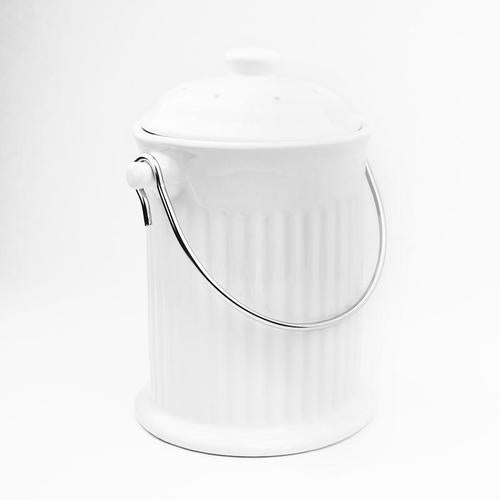 |
This durable ceramic 1 gallon compost bin will help make it easy and looks beautiful in your kitchen! Has a sturdy stainless steel handle for easy transport. Includes odor preventing filter in lid, which can last up to 6 months, depending on use. $41.99 |
|---|---|
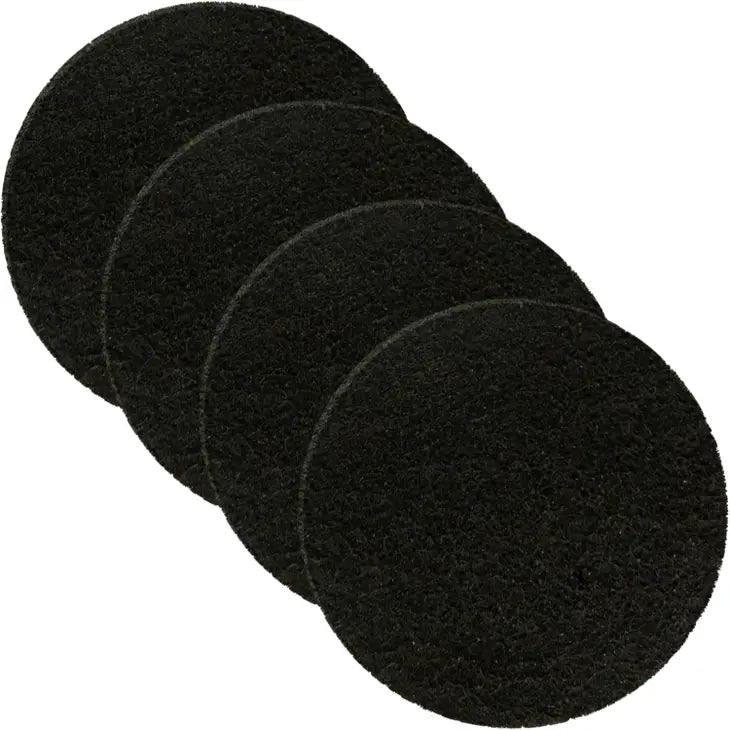 |
Keep your compost bin from getting smelly with these hemp compost filters! These filters last about 2 months before they need to be replaced. Clean your filter by popping it in your dishwasher. $2.99 |
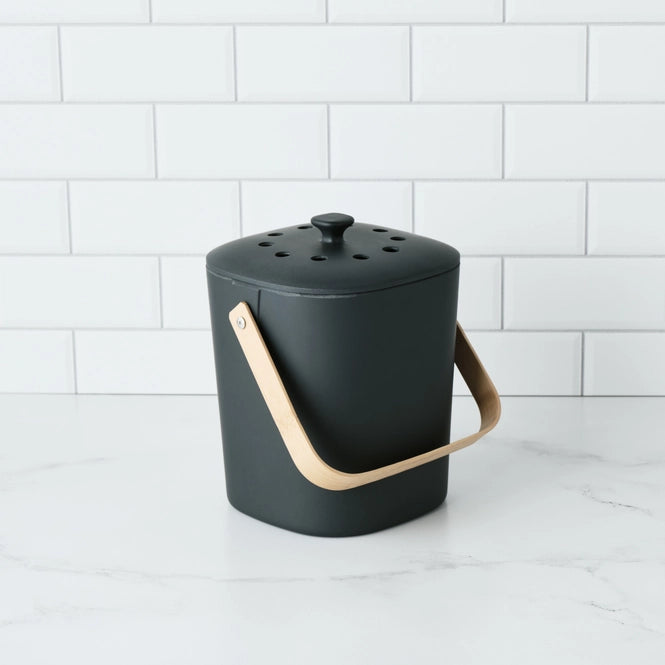 |
The Bamboozle compost bin is the perfect countertop solution for collecting and transporting your organic waste. Its filter lid locks in odors, and the bamboo handle allows for easy carrying. An array of colors makes it an ideal aesthetic addition to any kitchen. The bin is constructed with biodegradable bamboo fiber, making it safe for the dishwasher and compostable at the end of its life! $53.59 |
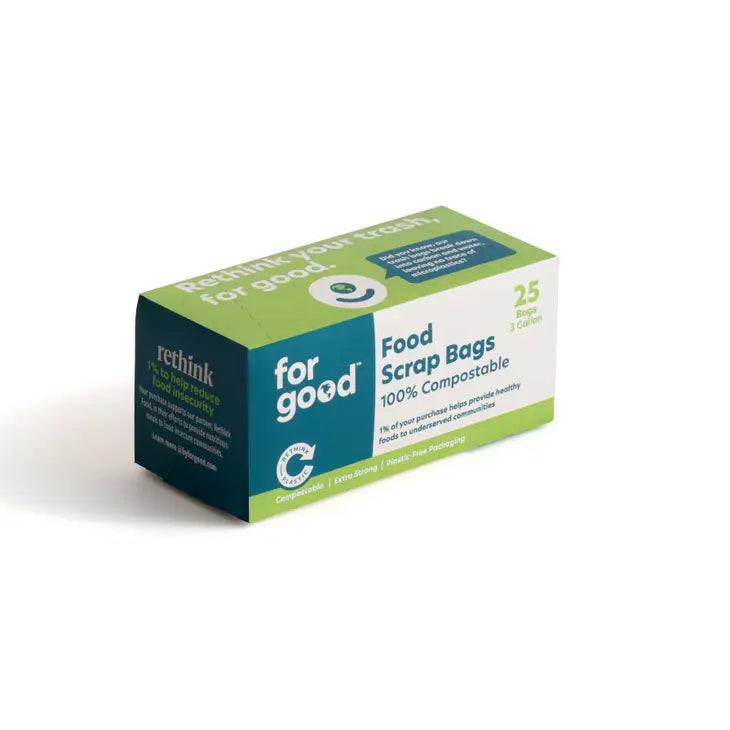 |
Compost Bags (3 Gallon or 13 Gallon) Strong, resistant to leaks and tears, perfect for food scraps. Made with plants (PLA & PBAT) that break down into carbon and water. Certified by BPI to rapidly compost in municipal or commercial composting facilities 3 gallon size; 25 bags per box - Ideal for use in small trash cans or for food scrap or organic waste collection—they’re a perfect fit for most countertop and under cabinet containers! 13 gallon size; 15 bags per box - Ideal for use in tall trash cans, like those in your kitchen. $8.99 - $10.99 |
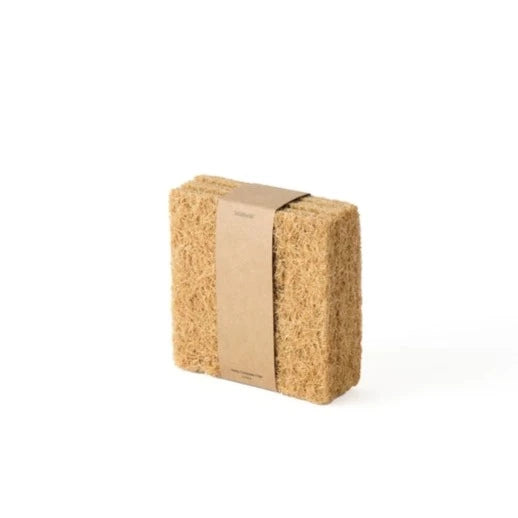 |
These 100% compostable hemp filters last for about two months and are the key to keeping the smells in and the flies out. This 6 pack of filters will last you all year long. Enjoy the added convenience of them being dishwasher friendly to freshen up and extend their usage. Once a filter has stopped being effective simply pop it out of the lid and right into your bin! $13.99 |
Let’s get composting!
Sources:
- Organics Recycling in Hennepin County: https://www.hennepin.us/en/residents/recycling-hazardous-waste/organics-recycling
- Organics Recycling in Ramsey County: https://www.ramseycounty.us/content/food-scraps-organics-recycling
- Organics Recycling in Washington County: https://www.washingtoncountymn.gov/2969/Food-Scraps-Collection
- Organics Recycling Guide: https://mc-379cbd4e-be3f-43d7-8383-5433-cdn-endpoint.azureedge.net/-/media/hennepinus/residents/recycling/documents/residential-organics-recycling-guide.pdf?rev=09e1a1352e304f4f894aa2b963f18802&hash=878FC16C4DBE85BFA2EEF00CD445E1BD
- https://www.worldwildlife.org/stories/fight-climate-change-by-preventing-food-waste
Recent Blog Posts
Discover more tips on living #ZeroWaste!
-
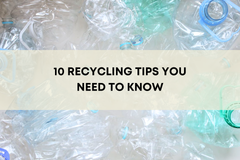
10 Recycling Tips You Need To Know
Recycling can be simple, but small mistakes can contaminate your recyclables and reduce their impact. In this guide, we share 10 practical tips to help you recycle smarter, from...
Read more -
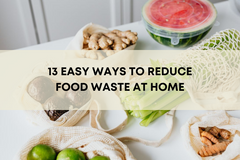
13 Easy Ways to Reduce Food Waste at Home
In the US, up to 40% of food goes uneaten — but small, everyday changes can make a big impact. From smarter storage to creative recipes for leftovers, these tips will help you w...
Read more -
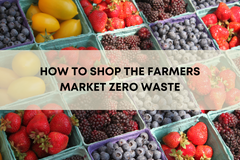
How To Shop The Farmers Market Zero Waste
Farmers Markets are full of fresh produce and local goods—but they can also be full of packaging waste if you're not prepared. Learn how to shop zero waste with practical tips l...
Read more



